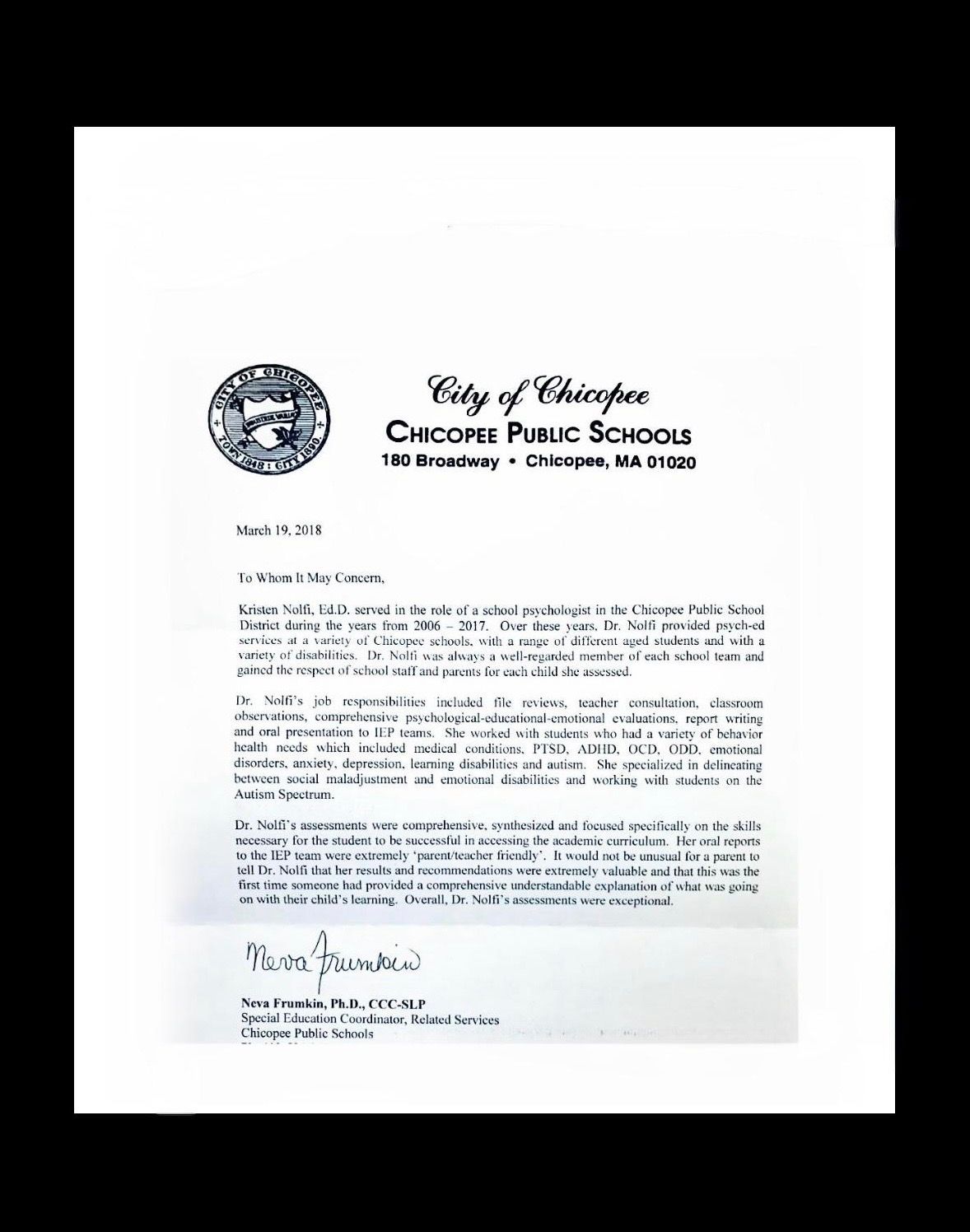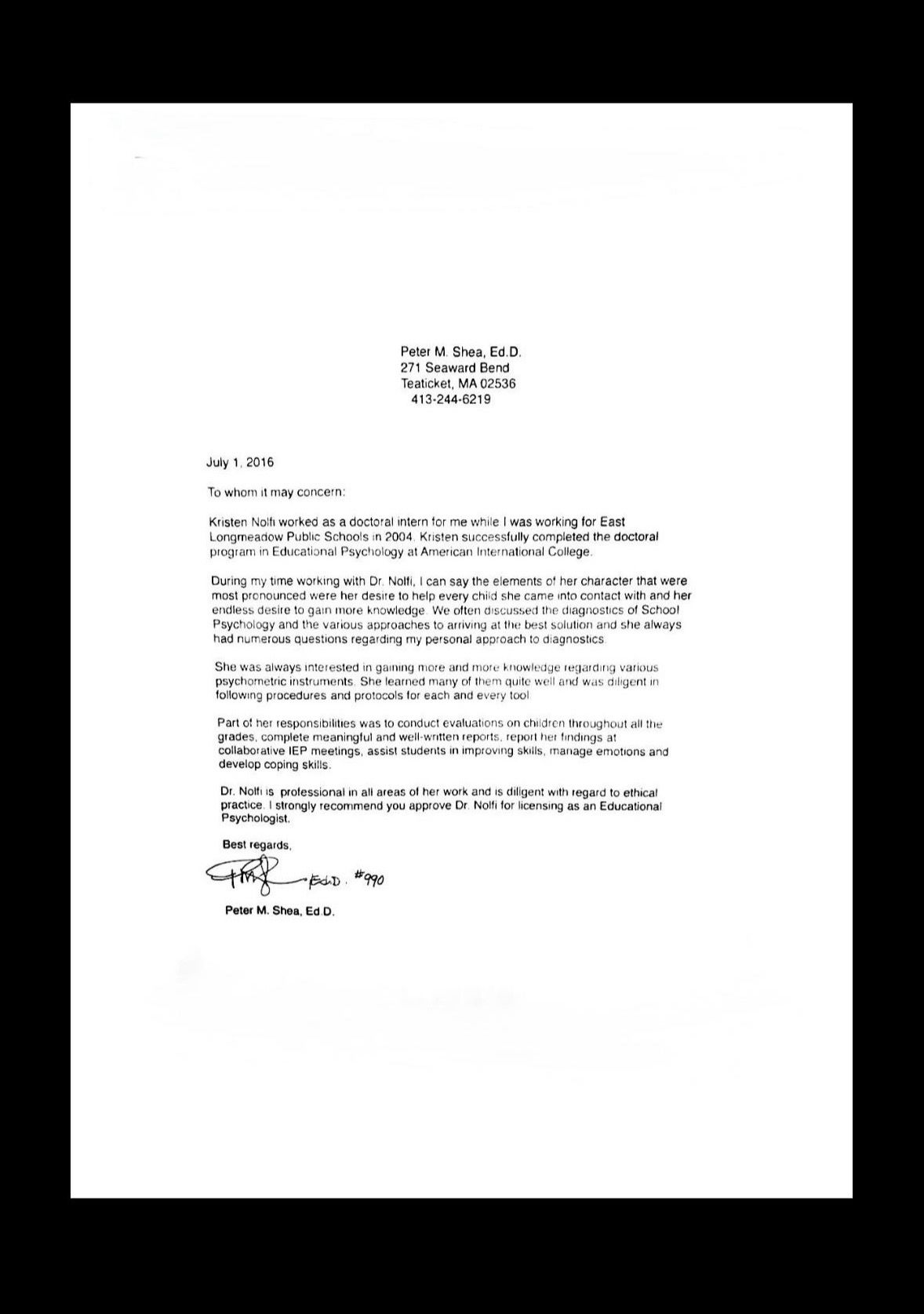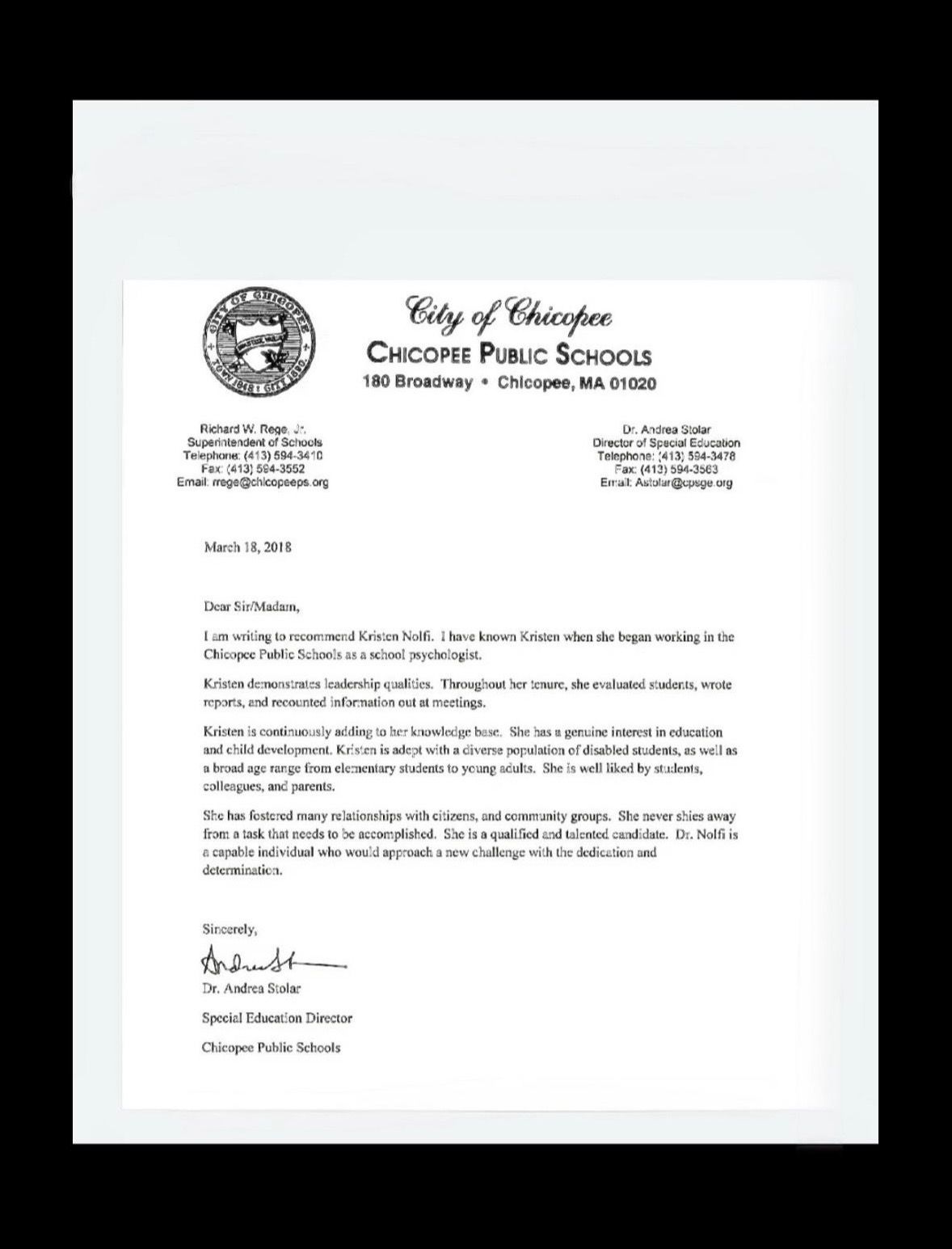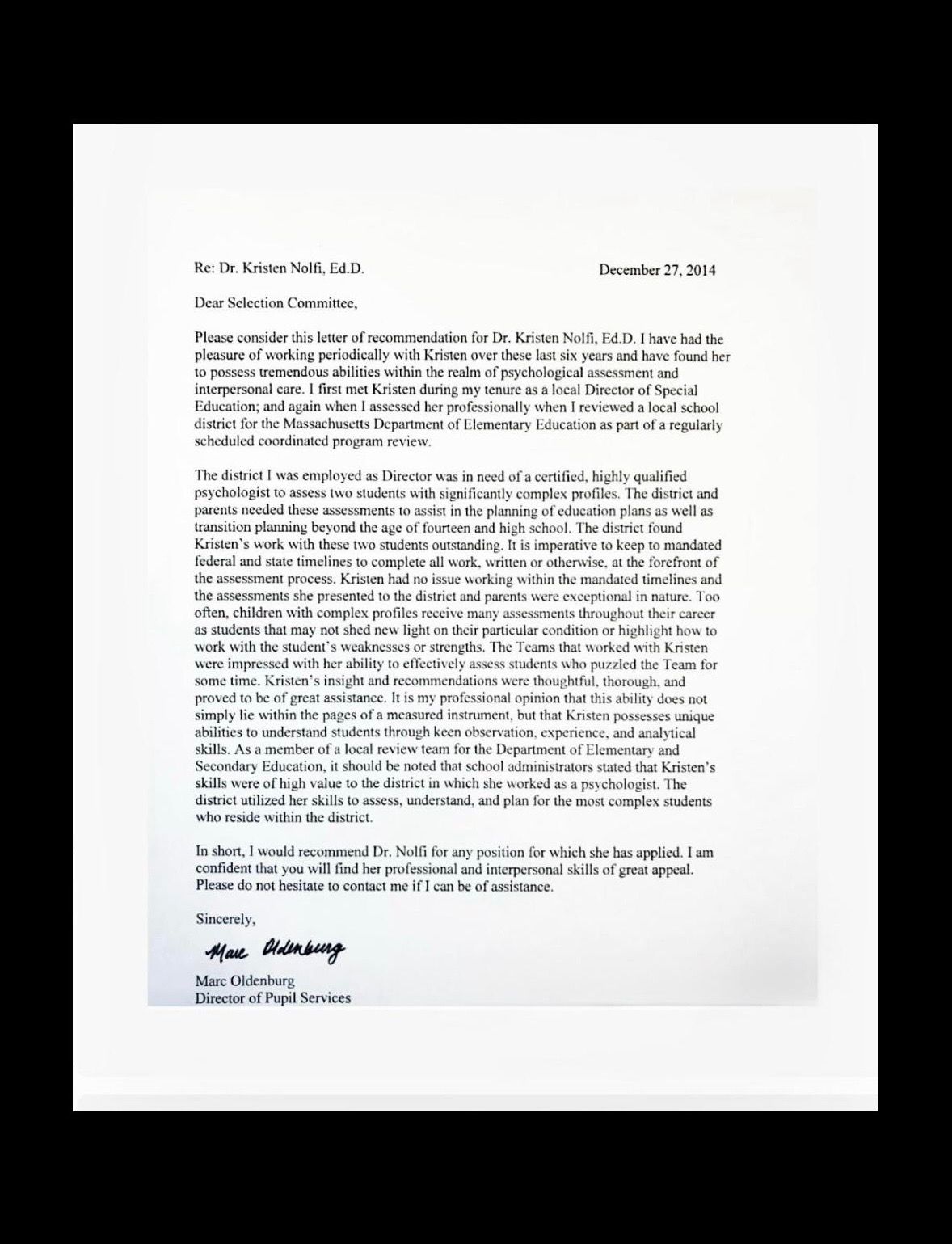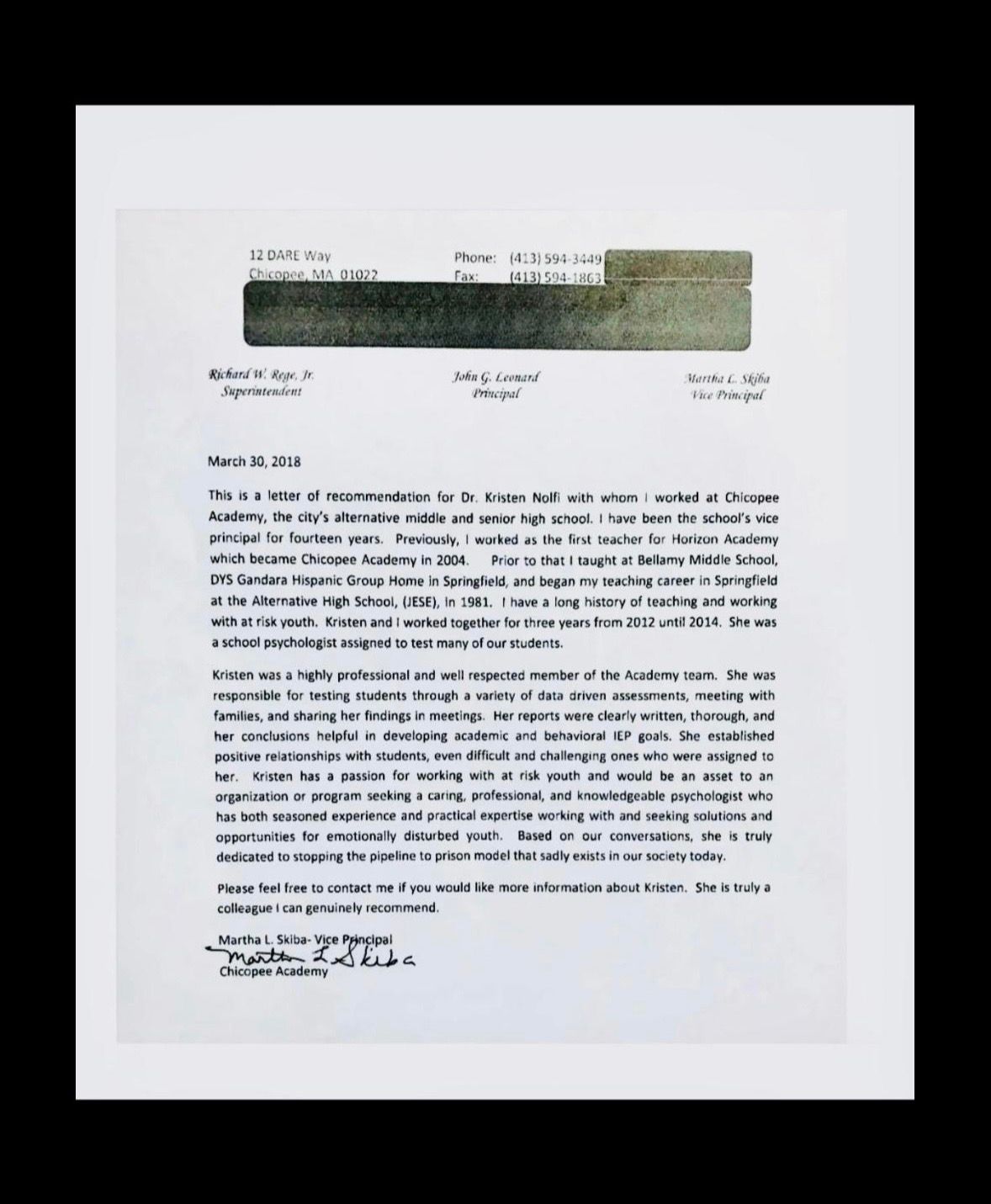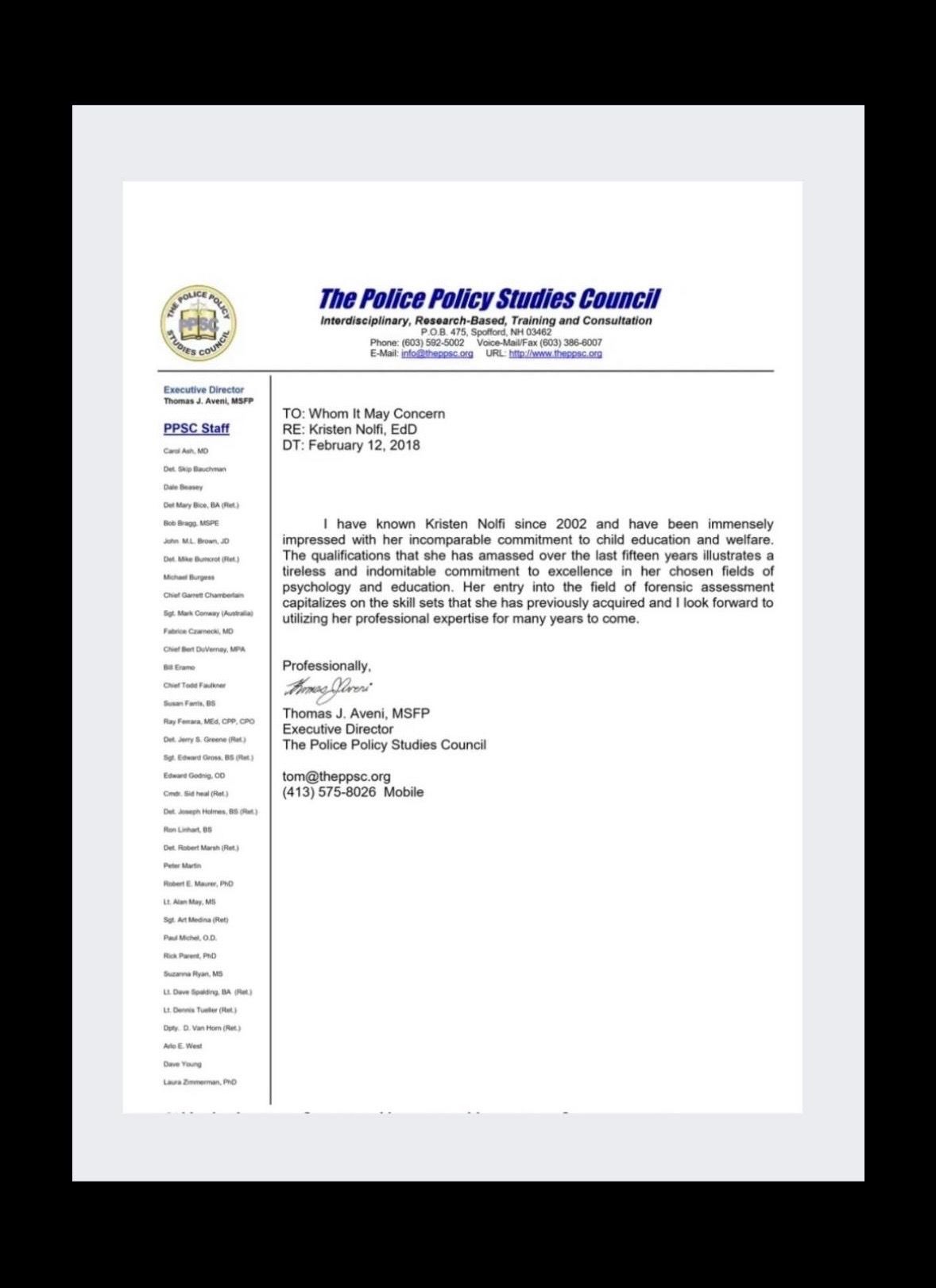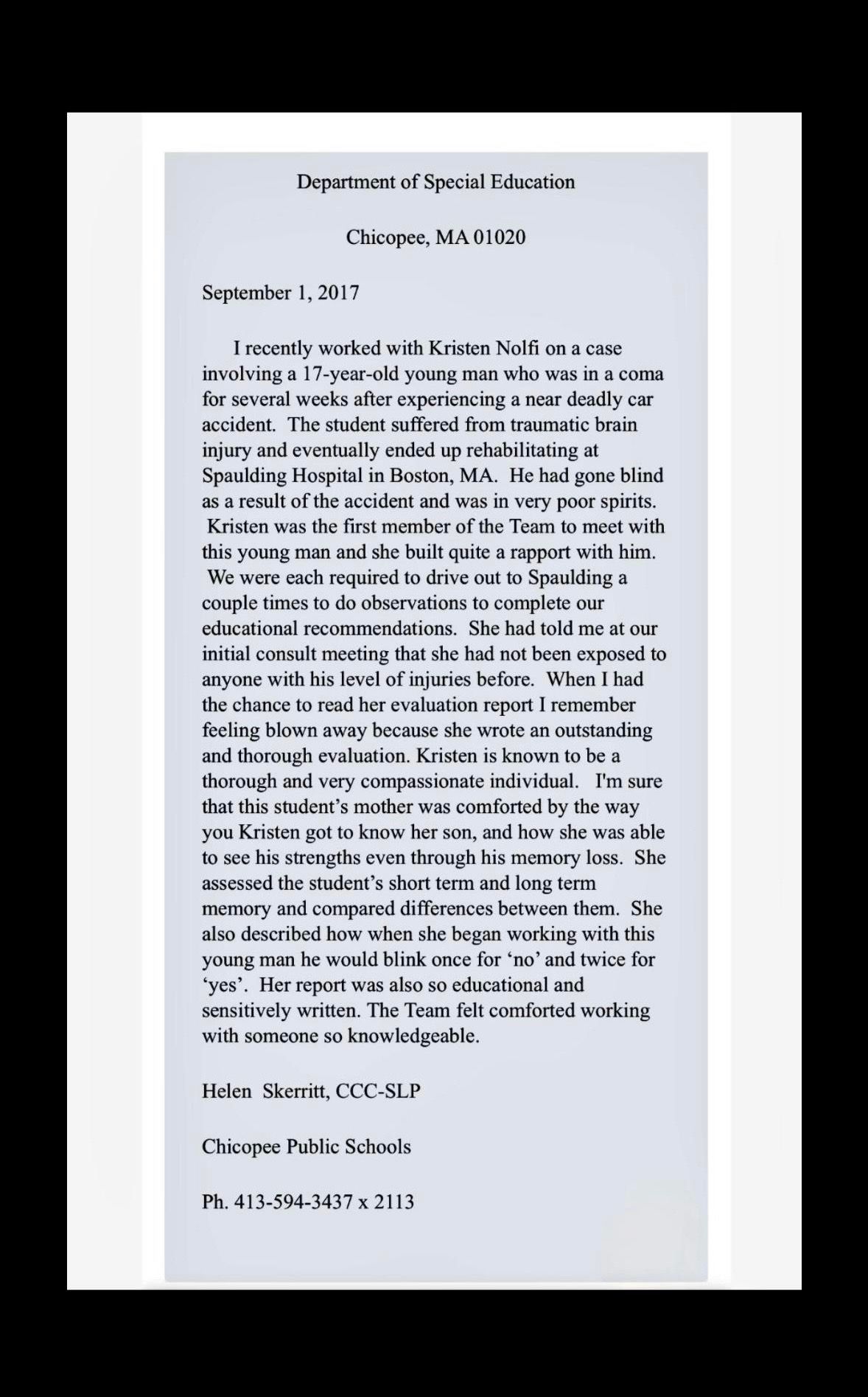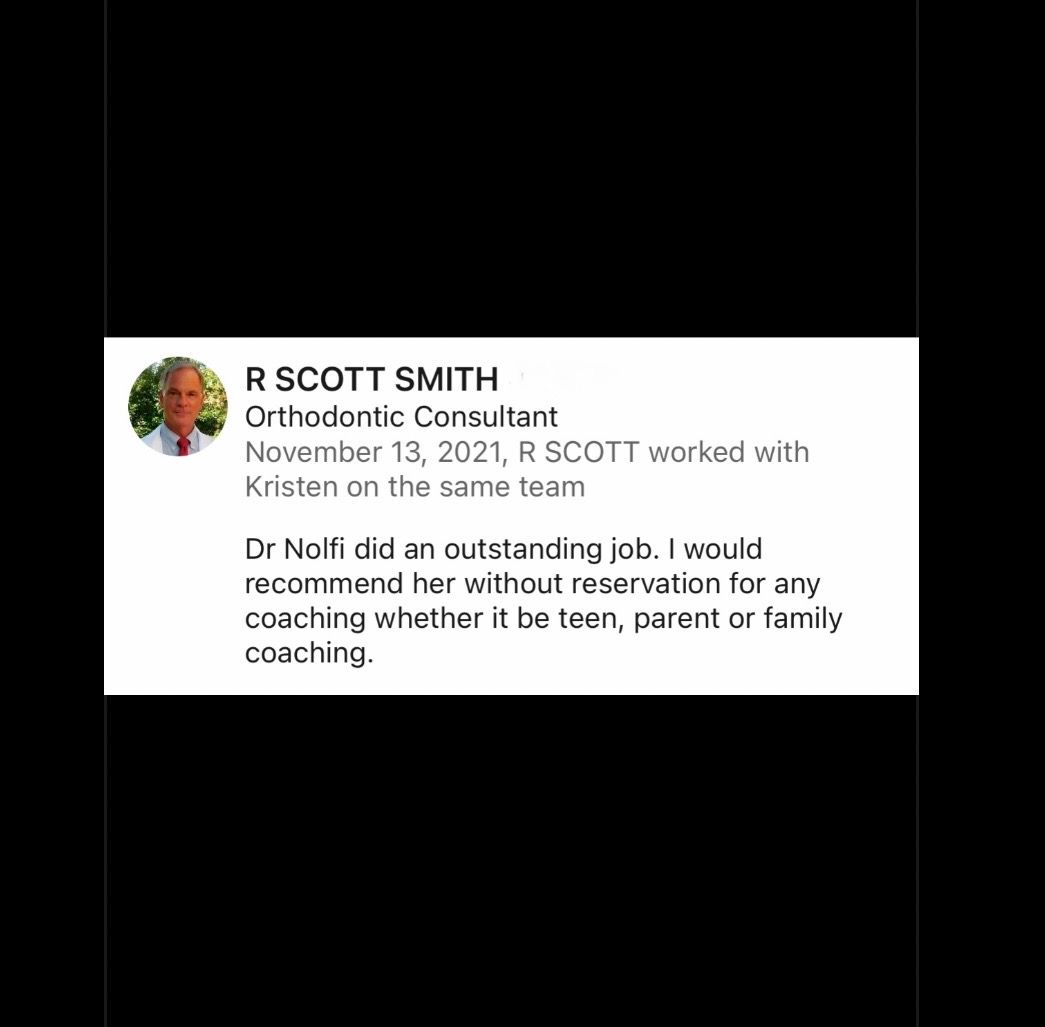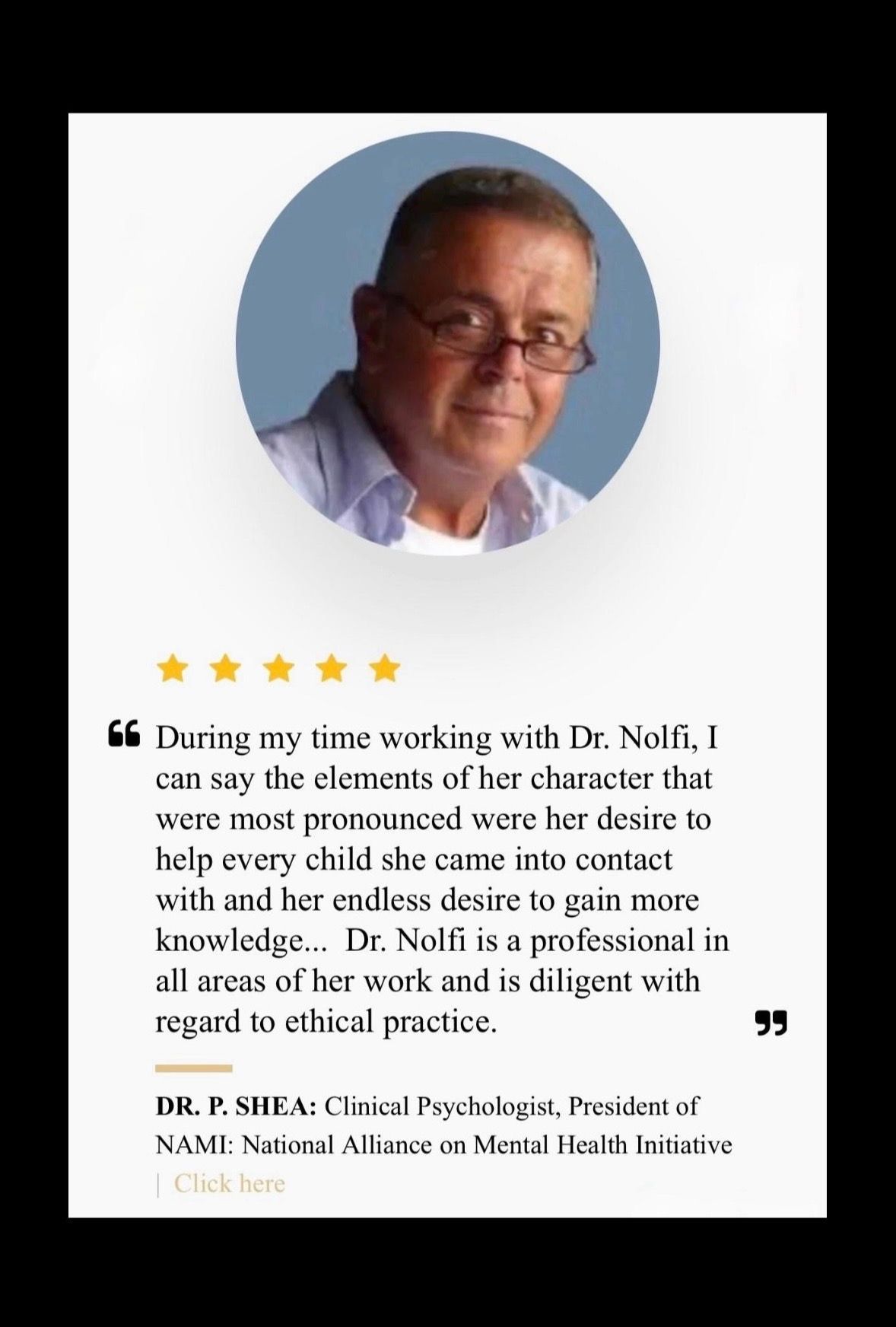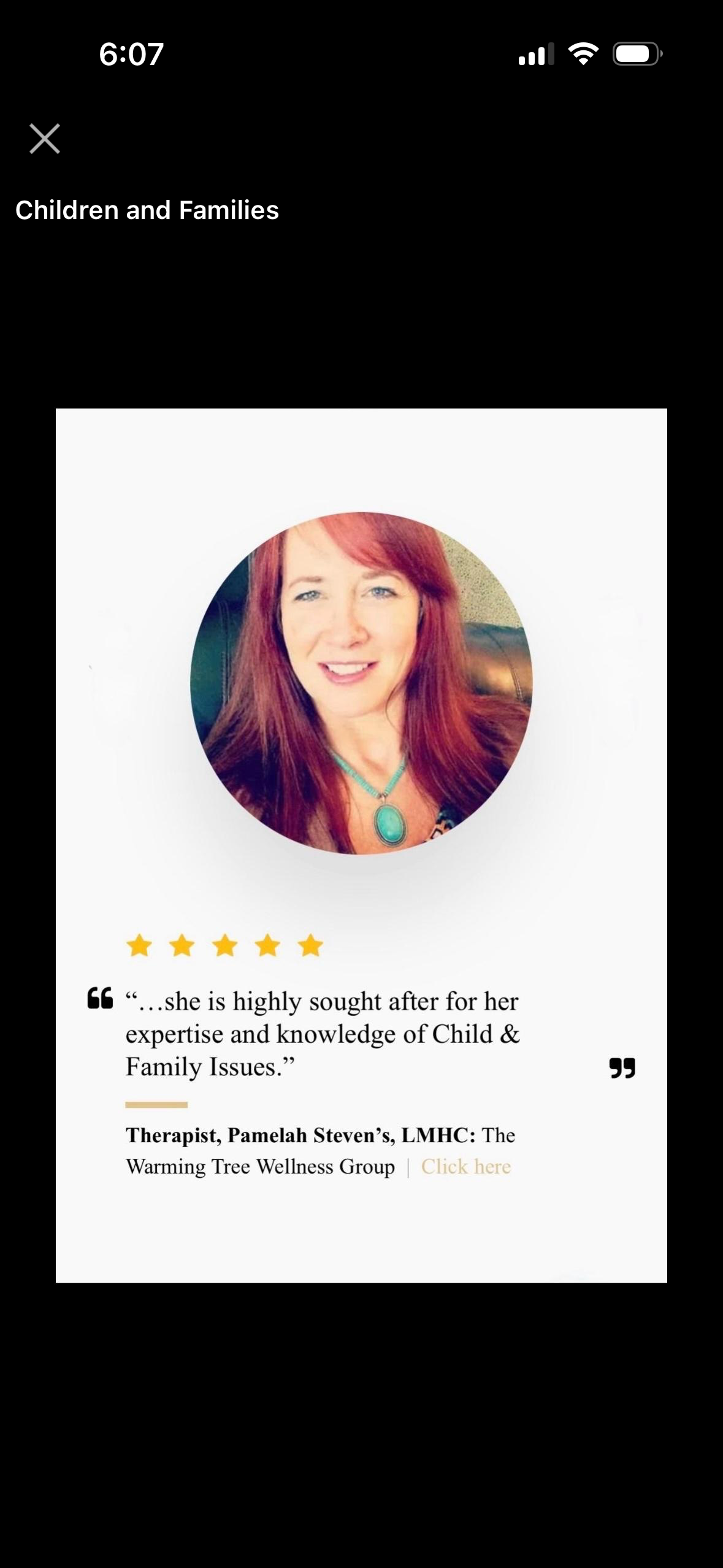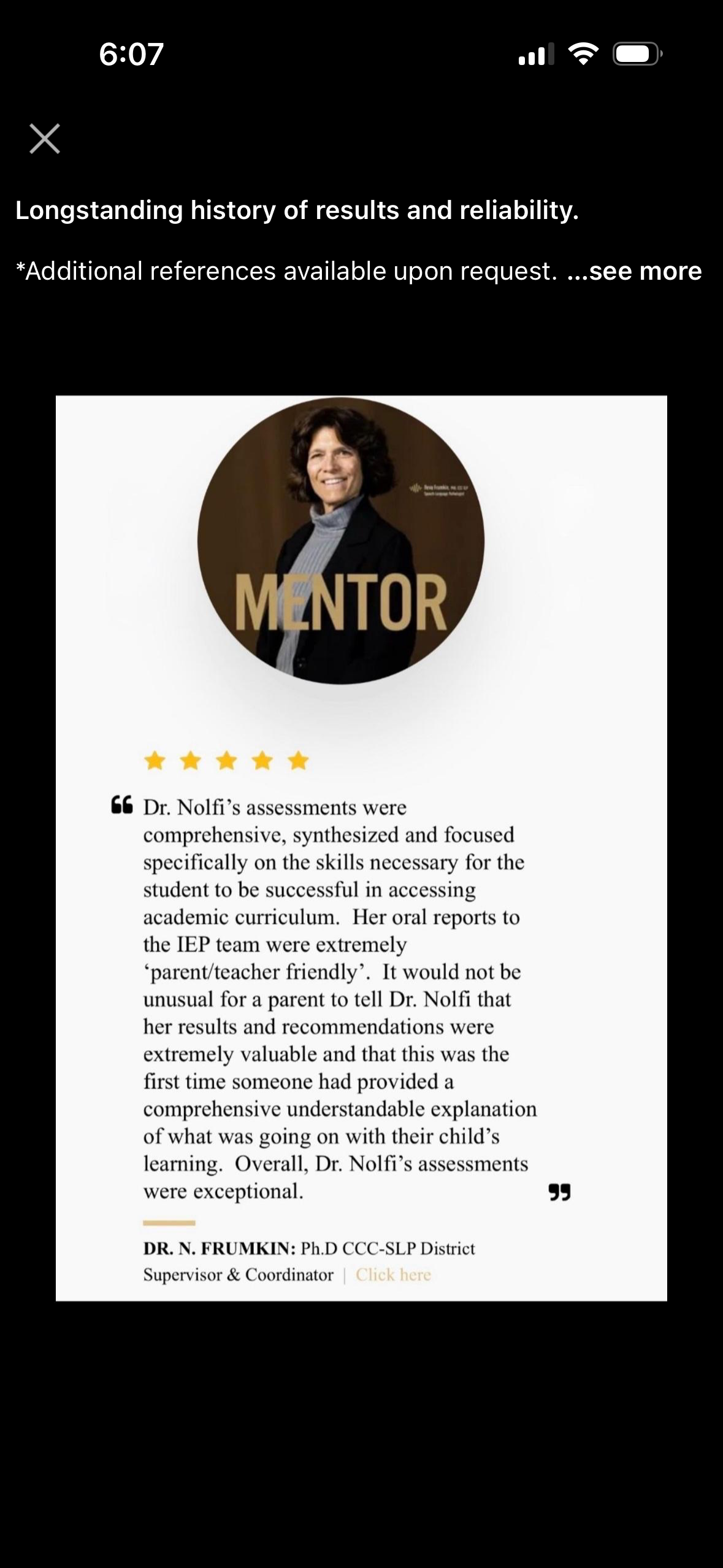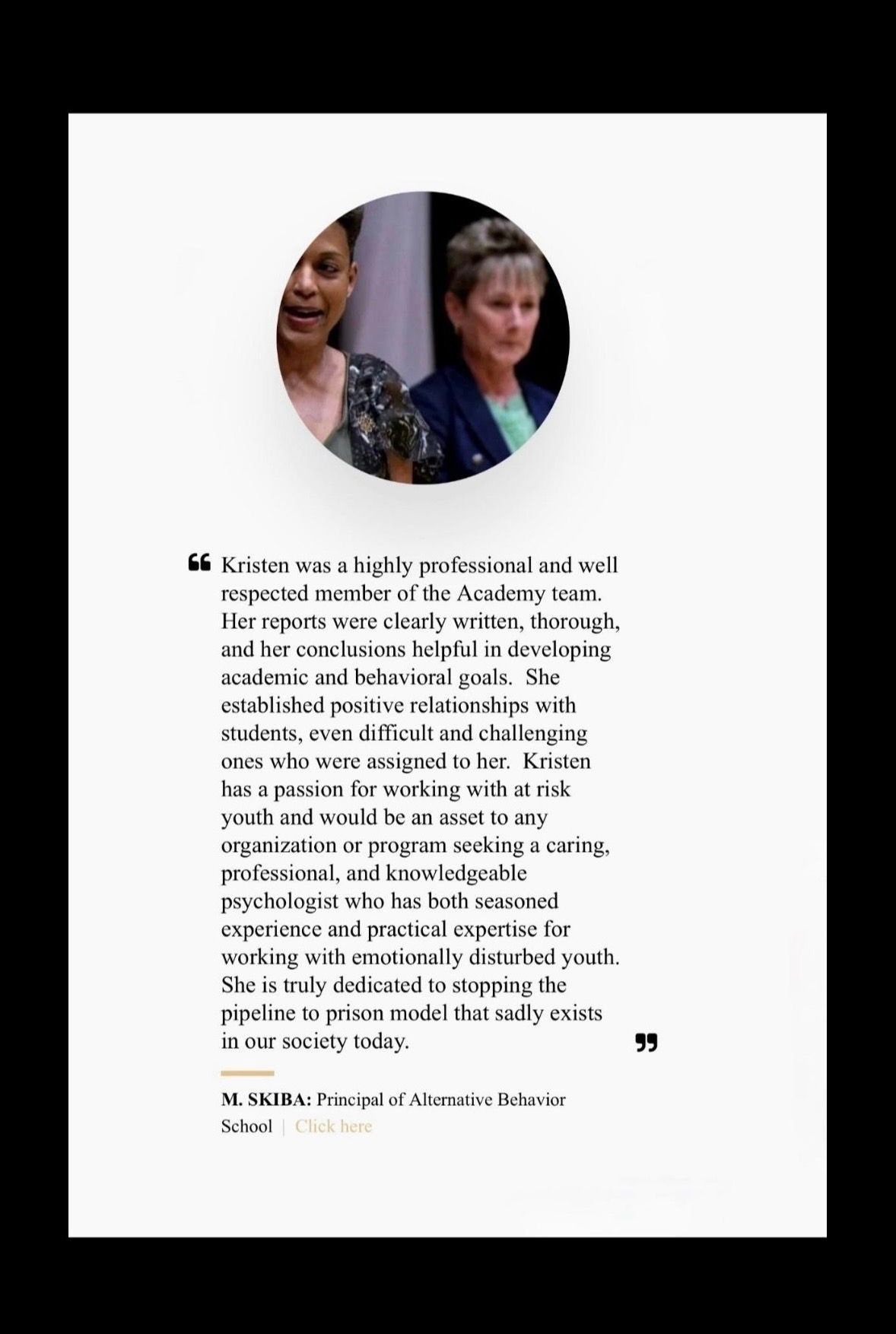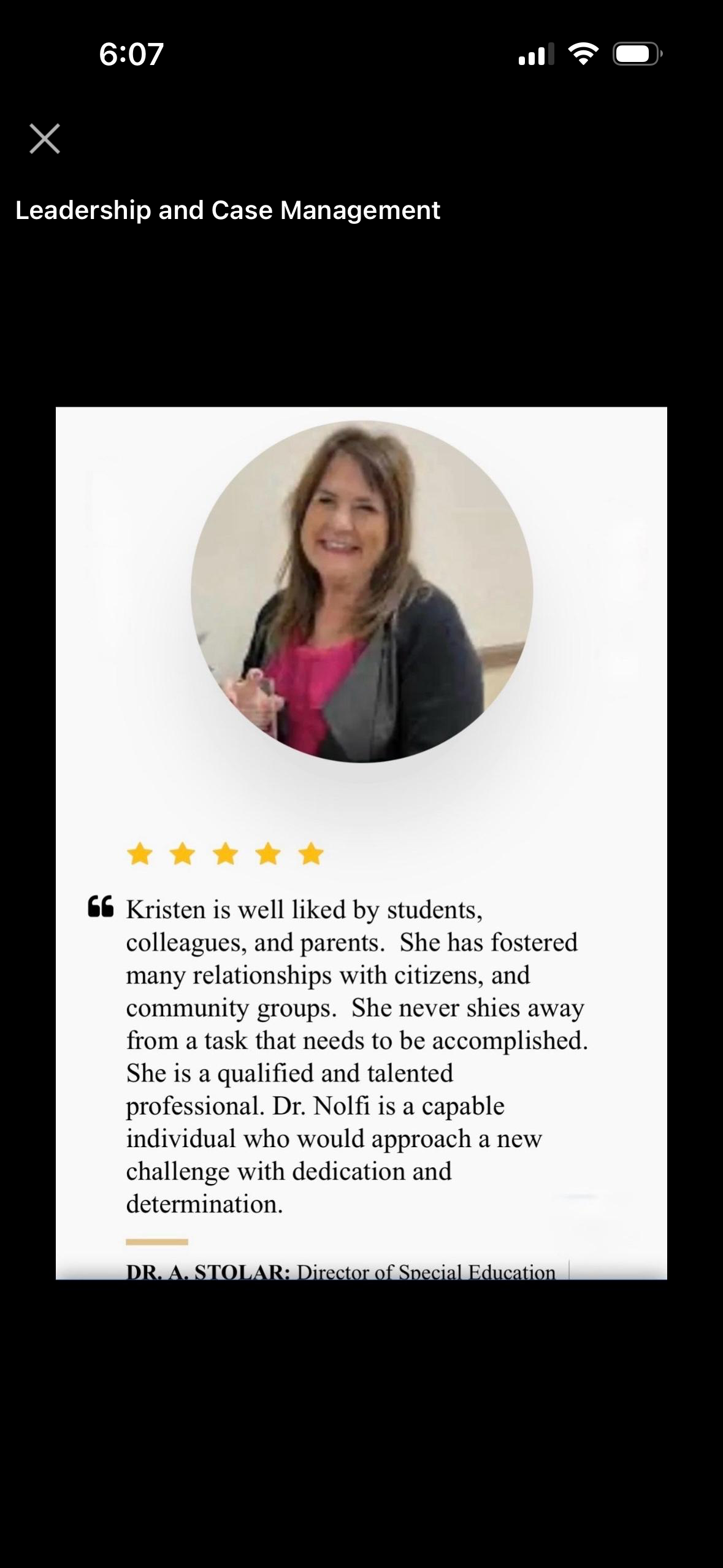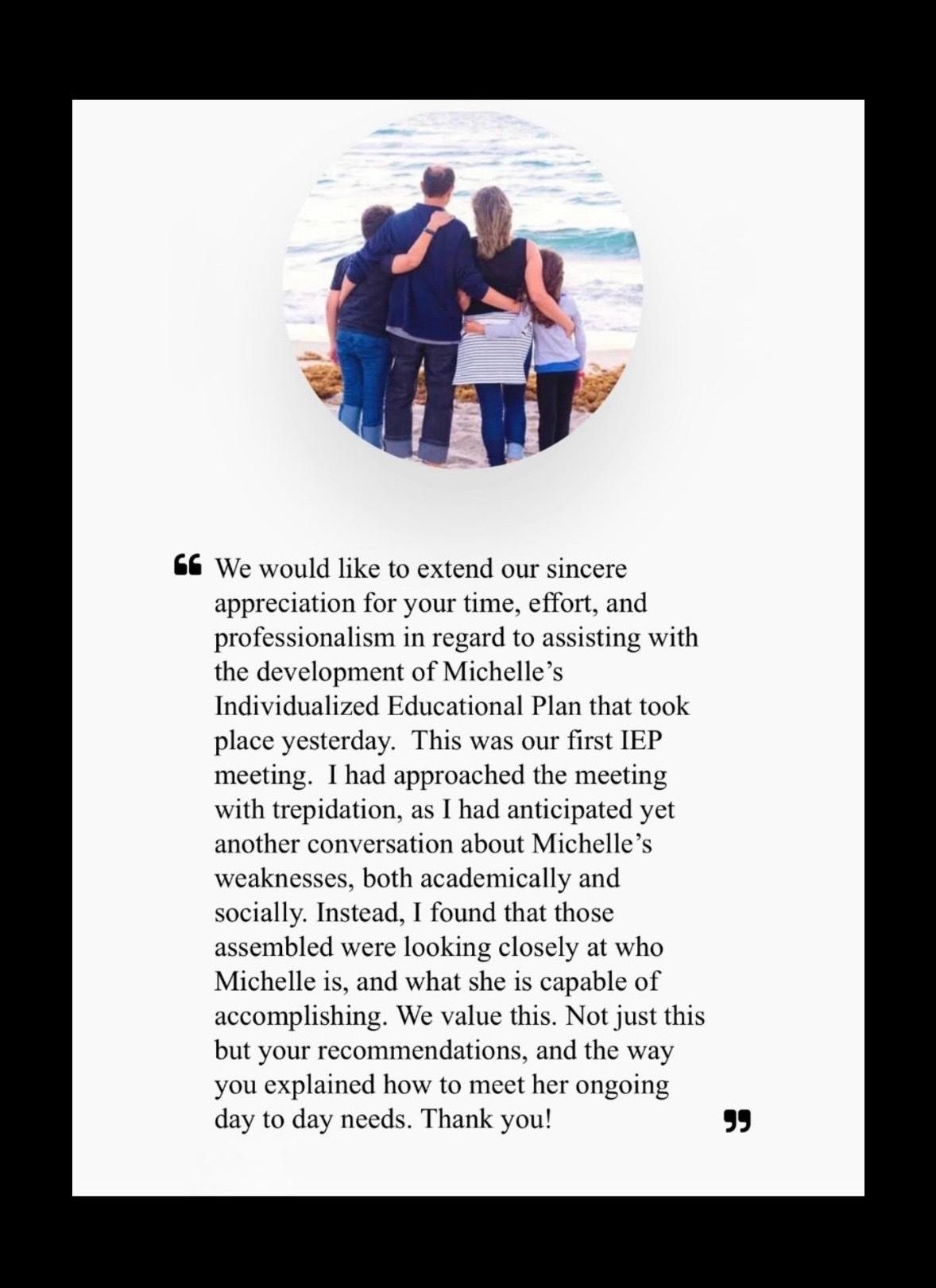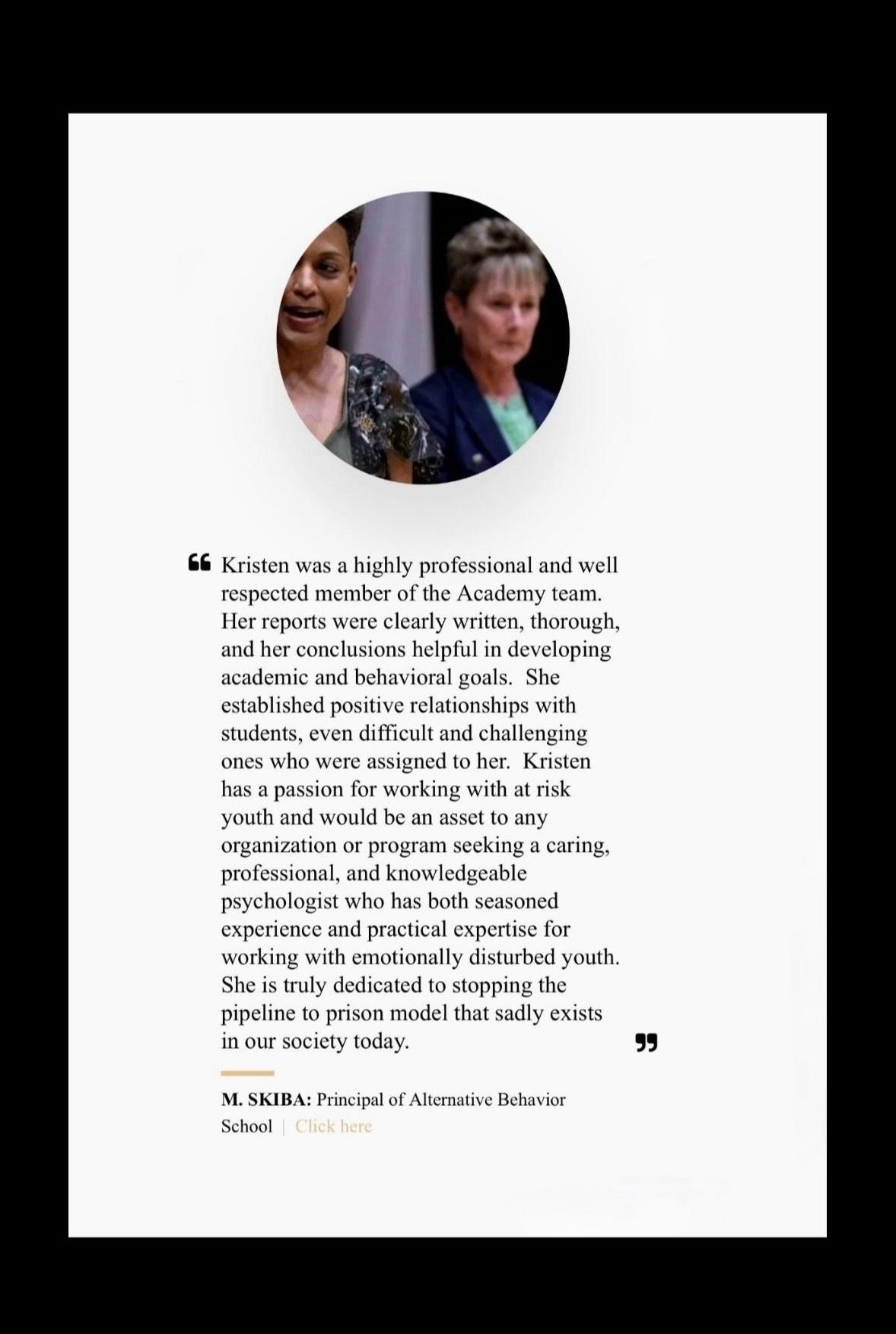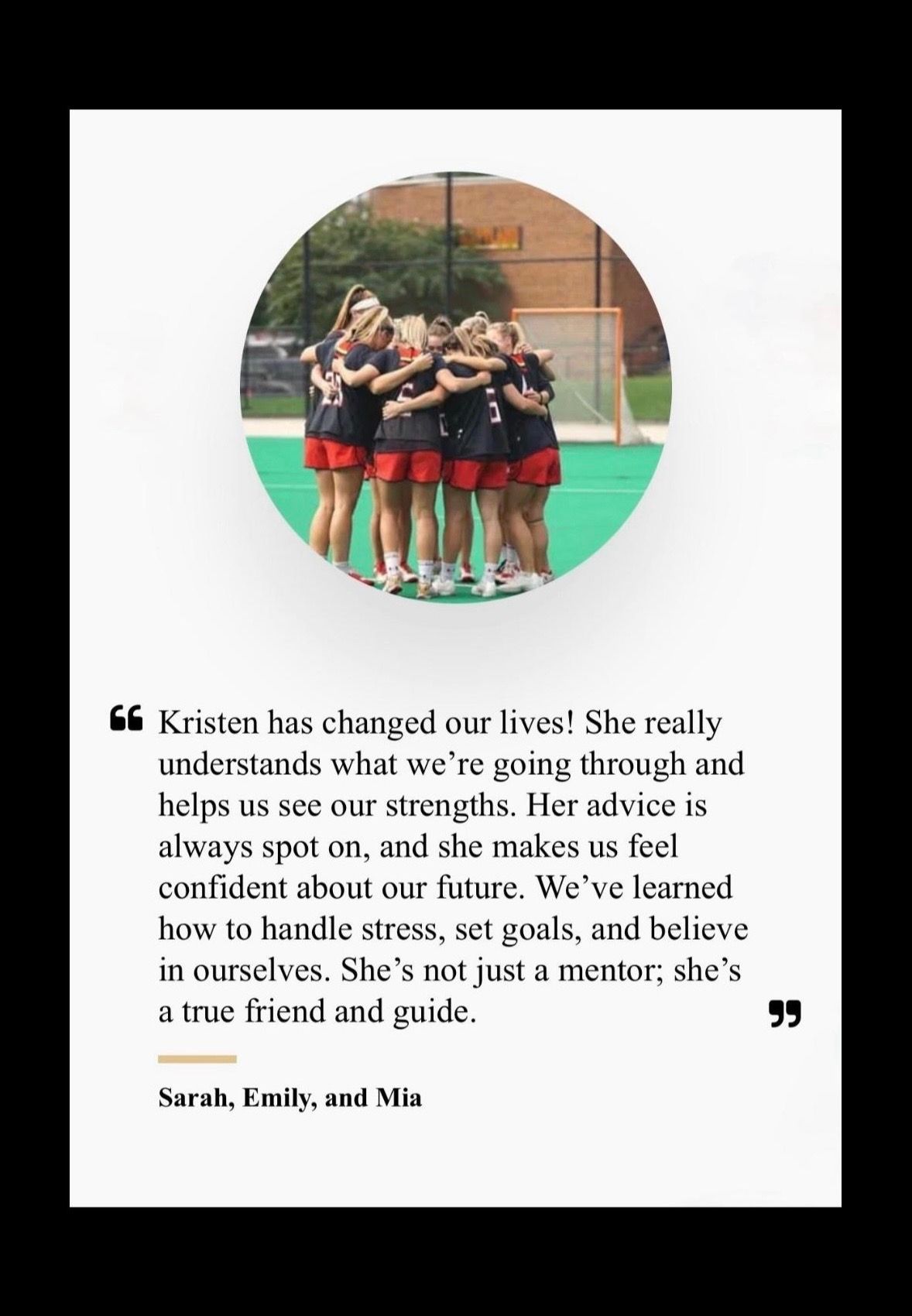The art & science of educational psychology in service of informed decision-making.
Rooted in Trust,
Proven Through Decades of Results
Since 1995.
Specialising in the design of structured solutions for navigating complexity across people and institutions.
The mind is a structure. Build wisely.
Build
for
Endurance.
____________
educational psychologist | ARCHITECT OF MIND
Kristen Nolfi
In much the same way one might examine the structural elements of a well-designed building, Dr. Kristen Nolfi analyzes the underlying frameworks of thought, behavior, and decision-making. She approaches the mind as a structured system, where cognitive and emotional components are interconnected and responsive. With the analytical precision and perspective of a designer, she clarifies complex patterns to support accurate understanding, sound judgment, and effective decision-making.

 This work addresses the dynamics of learning, behavior, and systems, with particular relevance for:
This work addresses the dynamics of learning, behavior, and systems, with particular relevance for:
Legal and Educational Professionals
School Leadership
Public and Private Agencies
Parents and Allied Professionals
Media and institutional professionals seeking structured, pre-engagement orientation to support clarity and accurate understanding.
Credentials
Professional Biographical Sketch
Dr. Kristen D. Nolfi is a doctoral-trained professional whose work centers on understanding cognitive structure and how patterns of learning, behavior, and adaptation emerge within educational and institutional environments. Her professional background spans more than three decades of work in specialized educational settings serving children and adolescents with developmental and learning differences.
She began her professional formation in the mid-1990s in specialized programs, including the Curtis Blake Center at American International College, where she worked in structured educational environments while completing her graduate training. These early experiences provided sustained exposure to developmental disabilities, language differences, and the ways educational systems respond to cognitive variability.
Dr. Nolfi holds an advanced graduate certification in Special Education and School Psychology, and a Doctorate in Educational Psychology. Across her academic training and professional development, her focus consistently emphasized the architecture of human cognition—how cognitive structure influences learning, behavior, and adaptation across educational and related contexts.
Throughout her career, Dr. Nolfi’s work has involved close engagement with educational records, developmental histories, behavioral data, and environmental context. Her background includes extensive experience in programs supporting language development, academic learning, and social functioning within structured educational systems. She has developed particular depth of knowledge in areas involving developmental variation, language-based learning differences, attention regulation, and related educational challenges.
In 2006, Dr. Nolfi undertook advanced postdoctoral training in structural cognition through the Personality Assessment System (PAS), an empirically grounded model focused on understanding cognitive organization, behavioral style, and adaptive functioning. This training became foundational to her intellectual framework, strengthening her capacity to synthesize complex information, recognize underlying patterns, and understand how cognitive structure influences behavior and decision-making within systems.
Her professional experience spans public and private schools, specialized programs including the May Institute, residential treatment environments, and collaboration with professionals working in juvenile justice and child-welfare–adjacent educational contexts. These settings required precision, neutrality, and careful attention to structure, accountability, and procedural clarity.
Dr. Nolfi is often engaged in roles that require disciplined analysis and careful interpretation of complex, multi-source information. Her work emphasizes structural clarity and synthesis—supporting professionals and institutions in understanding patterns, clarifying questions, and navigating complex situations within established educational and legal frameworks.
Her professional orientation reflects a commitment to investigative reasoning, and systems-level analysis.
Through her framework, Architecture of Mind, Dr. Nolfi integrates educational psychology, systems thinking, and architectural metaphor to support clarity and sound decision making within complex institutional contexts.
She began her professional formation in the mid-1990s in specialized programs, including the Curtis Blake Center at American International College, where she worked in structured educational environments while completing her graduate training. These early experiences provided sustained exposure to developmental disabilities, language differences, and the ways educational systems respond to cognitive variability.
Dr. Nolfi holds an advanced graduate certification in Special Education and School Psychology, and a Doctorate in Educational Psychology. Across her academic training and professional development, her focus consistently emphasized the architecture of human cognition—how cognitive structure influences learning, behavior, and adaptation across educational and related contexts.
Throughout her career, Dr. Nolfi’s work has involved close engagement with educational records, developmental histories, behavioral data, and environmental context. Her background includes extensive experience in programs supporting language development, academic learning, and social functioning within structured educational systems. She has developed particular depth of knowledge in areas involving developmental variation, language-based learning differences, attention regulation, and related educational challenges.
In 2006, Dr. Nolfi undertook advanced postdoctoral training in structural cognition through the Personality Assessment System (PAS), an empirically grounded model focused on understanding cognitive organization, behavioral style, and adaptive functioning. This training became foundational to her intellectual framework, strengthening her capacity to synthesize complex information, recognize underlying patterns, and understand how cognitive structure influences behavior and decision-making within systems.
Her professional experience spans public and private schools, specialized programs including the May Institute, residential treatment environments, and collaboration with professionals working in juvenile justice and child-welfare–adjacent educational contexts. These settings required precision, neutrality, and careful attention to structure, accountability, and procedural clarity.
Dr. Nolfi is often engaged in roles that require disciplined analysis and careful interpretation of complex, multi-source information. Her work emphasizes structural clarity and synthesis—supporting professionals and institutions in understanding patterns, clarifying questions, and navigating complex situations within established educational and legal frameworks.
Her professional orientation reflects a commitment to investigative reasoning, and systems-level analysis.
Through her framework, Architecture of Mind, Dr. Nolfi integrates educational psychology, systems thinking, and architectural metaphor to support clarity and sound decision making within complex institutional contexts.
Resume
SUMMARY
Dr. Kristen Nolfi is a doctoral-trained educational psychologist with over 20 years of experience working across public schools, specialized programs, consulting practice, and court-adjacent environments. Her work focuses on understanding how educational, legal, and social systems interact in practice, with attention to developmental context, institutional structure, and downstream effects on decision-making.
Her professional orientation emphasizes the careful synthesis of complex qualitative and quantitative information to support accurate understanding, sound judgment, and institutional clarity. She brings experience across education, forensic mental health contexts, family court systems, child protection, and multidisciplinary collaboration, with a consistent focus on ethical containment and role-defined practice.
Dr. Kristen Nolfi is a doctoral-trained educational psychologist with over 20 years of experience working across public schools, specialized programs, consulting practice, and court-adjacent environments. Her work focuses on understanding how educational, legal, and social systems interact in practice, with attention to developmental context, institutional structure, and downstream effects on decision-making.
Her professional orientation emphasizes the careful synthesis of complex qualitative and quantitative information to support accurate understanding, sound judgment, and institutional clarity. She brings experience across education, forensic mental health contexts, family court systems, child protection, and multidisciplinary collaboration, with a consistent focus on ethical containment and role-defined practice.
EDUCATION
Doctor of Educational Psychology (with honors) American International College, Springfield, MA (2006)
CAGS, Special Education | School Psychology (with honors) American International College, Springfield, MA (2002)
Bachelor of Arts, Psychology and Teaching (with honors) Western New England University, Springfield, MA (1994)
CAGS, Special Education | School Psychology (with honors) American International College, Springfield, MA (2002)
Bachelor of Arts, Psychology and Teaching (with honors) Western New England University, Springfield, MA (1994)
LICENSURE
- Licensed Educational Psychologist, Massachusetts (2017–2025)
- Licensed School Psychologist, Massachusetts (2006–2022)
- Licensed Educator, Massachusetts (1996–2022)
SELECTED SPECIALIZED TRAINING, PROFESSIONAL DEVELOPMENT & CERTIFICATIONS
Massachusetts School of Professional Psychology (William James College) | Boston, MA | Child & Family Forensics Certificate Program (2019 - 2021)
Harvard University, Chan School of Public Health, Cambridge, MA | Continuing Education Training, Child Protection and Human Rights Law, J. Bhaba Certificate (2021)
Center of Excellence for Children, Families and the Law, Boston, MA | Continuing Education Training, Overcoming Barriers: Parent-Child Contact Problems (2018, 2021)
Yale Summer Series on Autism & Related Disorders (2020), F. Volkmar
- Massachusetts Probate and Family Court Standing Order 1-17 (Parent Coordination requirements met)
- Mediation & Conflict Resolution Certificate
- American Board of Vocational Experts (ABVE renewal in progress)
- Association of Family and Conciliation Courts (AFCC) peer-group consultancy
SKILLS & EXPERTISE
- Psychoeducational Assessments: Cognitive, academic, emotional, and adaptive functioning evaluations.
- Behavioral Analysis: Functional Behavior Assessments (FBAs), Behavior Intervention Plans (BIPs).
- Child and Family Forensics Consultation: Court-adjacent assessments and consultation.
- Special Education: IEP development, 504 Plans, and legal compliance in school systems.
- Consultation & Training: Guidance for schools, parents, and attorneys on educational strategies and interventions.
- Case Management: Collaboration with school administrators on student needs and safety.
- Pre-Engagement Orientation & Background Synthesis: Preparation of concise, non-clinical briefing materials to support accurate understanding, and communication alignment, prior to interviews, or high-visibility interactions.
EMPLOYMENT
Educational Psychology Consulting Practice, Longmeadow, MA (2017-2025), Educational Psychologist & Case Analyst
- Analyzed educational, behavioral, and family-system dynamics to support decision-making in complex institutional and legal contexts.
- Synthesized longitudinal records, assessments, and contextual data to identify systemic drivers of conflict, escalation, and misalignment.
- Prepared structured orientation briefs and analytical summaries to support informed decision-making prior to hearings, interventions, or high-impact actions.
- Consulted with attorneys, guardians ad litem, educators, and administrators on systemic implications of individual cases and policy constraints.
Springfield & Chicopee Public Schools (2006 – 2022) | Licensed School Psychologist
- Conducted psychological evaluations and behavioral assessments for students in urban school districts to identify learning disabilities, emotional disturbances, and developmental disorders.
- Designed and delivered academic and behavioral interventions to support student learning, regulation, and access to educational services.
- Collaborated with multidisciplinary teams (teachers, administrators, social workers) to develop and implement IEPs and ensure legal compliance in special education services.
- Prepared evidence-based reports for use in due process hearings and provided testimony on educational matters related to special education.
- Provided consultation for school administrators regarding student safety, bullying, and behavioral concerns.
Hampden County Sheriff’s Department (2017 – 2018) | Forensic Mental Health Clinician
- Conducted structured interviews and risk assessment activities within correctional settings to inform clinical understanding of mental health and behavioral concerns.
- Collaborated with clinical, medical, and administrative teams to maintain confidentiality and adhere to institutional security protocols.
- Provided short-term, structured therapeutic interventions and co-facilitated psychoeducational groups focused on substance use recovery and life skills.
- Participated in weekly clinical supervision and contributed to treatment planning within a multidisciplinary correctional mental health framework.
Hampden County District Attorney’s Office (1992 – 1994) | Victim-Witness Advocate
- Provided procedural support and information to victims and witnesses during criminal proceedings.
- Assisted with communication between victims, prosecutors, and law enforcement regarding case status, court dates, and safety planning.
- Coordinated referrals to community-based resources in accordance with office protocols.
- Supported post-conviction processes by assisting victims with access to services and follow-up resources.
Brennan & Couchon Associate (2008 – 2014) | Postdoctoral Research and Training | Specialization in the Gittinger Personality Assessment System (PAS) and Wechsler Testing
- Completed multi-year postdoctoral training focused on cognitive structure, behavioral patterns, and psychometric interpretation.
- Received advanced training in the Personality Assessment System (PAS), an empirically grounded framework for understanding cognitive organization, behavioral style, and adaptive functioning.
- Applied PAS and Wechsler-based assessment methods to support educational and clinical understanding of learning differences, behavior, and adaptation.
- Collaborated with licensed psychologists and educational professionals on assessment interpretation, consultation, and report development.
Westfield State University & Cambridge College (2005 – 2009) | Professor of Psychology & Education
- Taught graduate and undergraduate courses on behavior analysis, personality theory, and learning processes.
- Developed applied coursework and mentored students in psychological theories and educational strategies.
PUBLIC SERVICE ACTIVITIES
- Dyslexia Resource Guide, Springfield Public Schools, Committee Writer (2019-2020)
- Autism Speaks, Volunteer Referral Support (2017-2018)
- Holy Name Hockey League, W. Springfield, Volunteer Coordinator (2016-2017)
- Cub Scout Troop 48, Boy Scouts of America, Springfield, Co-Leader (2016–2017)
- Girls Lacrosse Team, Longmeadow, Assistant Coach (2014)
- Brownie Girl Scout Troop 269, Girl Scouts of America, Longmeadow, Co-Leader (2005–2007)
- The Renaissance Club, Agawam H.S. and Pathfinder H.S., Co-Chair (1996-2000)
- Brightside for Children and Families, W. Springfield, Volunteer (1996-1997)
- Richard F. Nolfi Scholarship Foundation, Fairfield H.S., Fairfield, CT, Co-President (1995-1999)
- Psi Chi Honors Society, Western New England University, Secretary (1992)
PAST & PRESENT AFFILIATIONS
- American Psychological Association (APA)
- Autism Speaks
- Massachusetts Association of School Psychologists (MASP)
- Association of Family and Conciliation Courts (AFCC)
- Citizens for Juvenile Justice (CfJJ)
- American Board of Vocational Experts (ABVE)
- The Personality Assessment System Foundation (PASF)
Professional Orientation and Background
Dr. Kristen D. Nolfi’s professional perspective has been shaped by work and training across educational, clinical, correctional, and court-adjacent environments, with a consistent focus on developmental logic, cognitive structure, and systems-level analysis. Her background reflects long-standing engagement with complex cases involving disability, behavior, and institutional response, particularly in contexts where developmental factors intersect with formal decision-making processes.
Early in her career, Dr. Nolfi became involved in educational and administrative matters requiring developmentally grounded interpretation, including participation in manifestation determination processes and disability-related eligibility clarification. These experiences contributed to her interest in how cognitive, developmental, and environmental factors influence behavior, communication, and system response.
Over time, her exposure to educational systems expanded to include familiarity with court-involved family systems and related policy and practice frameworks. Through repeated engagement with formal court processes and subsequent structured study, she developed a deeper understanding of how legal procedures, institutional demands, and stressors can shape presentation, communication, and behavior in high-stakes settings.
In response to these experiences, Dr. Nolfi pursued formal education and professional development focused on child and family forensics, family law policy, and court-involved systems. This included the Child & Family Forensics Certificate Program at William James College, along with additional graduate-level coursework and continuing education addressing child protection, parent–child contact issues, and the operation of probate and family court systems. Her ongoing professional development has included interdisciplinary training and peer consultation through organizations such as the Association of Family and Conciliation Courts.
Across roles and settings, Dr. Nolfi’s professional orientation emphasizes careful record review, pattern recognition, and contextual analysis to understand how developmental profiles, environmental demands, and stressors interact within complex systems. Her approach prioritizes accuracy, procedural clarity, and respect for role boundaries, with attention to how misinterpretation can arise when developmental or communication differences are not adequately considered.
This background informs a systems-focused lens that values disciplined reasoning, neutrality, and clarity when navigating complex educational and institutional contexts.
References
Formal professional references and testimonials are available on LinkedIn under the name Kristen Nolfi.
Services
